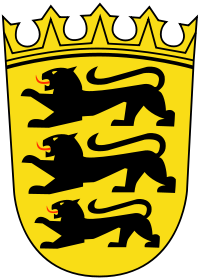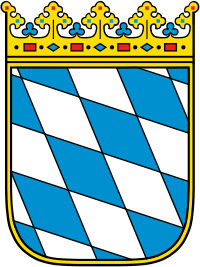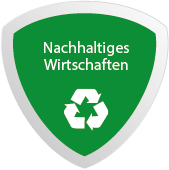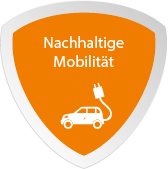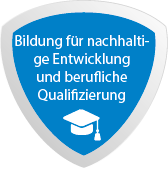Die nachfolgenden Inhalte stammen aus dem Kooperationsprogramm "Interreg Danube Transnational Programme" (Version 1.1).
Kurzbeschreibung
This action supports a wide variety of measures to promote the sustainable use of the natural and cultural heritage as well as accompanying frameworks and projects.
Förderziel
Strengthen joint and integrated approaches to preserve and manage the diversity of natural and cultural heritage and resources in the Danube region as a basis for sustainable development and growth strategies.
Fördergegenstände
Bildung, Qualifizierung, Strategieentwicklung, Konzept-, Teilkonzepterstellung, Vernetzung, Kooperation, Wissenstransfer
Zuwendungsempfänger
Beneficiaries are according to their legal form:
Local, regional and national public authorities/institutions, bodies governed by public law, EGTC, international organisations and private bodies.
Beneficiaries comprise according to their thematic scope among others:
Local, regional and national public authorities and organisations established and managed by public authorities responsible for environmental, tourist and cultural issues, sectoral agencies, regional development agencies, tourist operators, tourist information centres (points), regional tourism boards and museums, research and development institutions, universities with research facilities, business support organisation (e.g. chamber of commerce, business innovations centres), higher education, education/training centre and school, NGOs, private enterprises including SME.
Förderfähige Gebietskulisse
Die förderfähige Gebietskulisse in Deutschland umfasst: Baden-Württemberg und Bayern.
Kooperationsmöglichkeiten bestehen mit folgenden Staaten: Österreich, Bosnien und Herzegowina, Bulgarien, Tschechische Republik, Ungarn, Kroatien, Moldawien, Rumänien, Montenegro, Serbien, Slowenien und die Slowakei.
Achtung: Bitte prüfen Sie im Kooperationsprogramm (KP, CP) welche Teilräume der Staaten förderfähig sind.
Art der Unterstützung
Non-repayable grant
Beschreibung
Actions are assigned to Programme-Part "Better connected and energy responsible Danube region".
The following types of action may be financed:
Development of common orientations, frameworks and strategies, development and practical implementation of transnational tools and services, preparation of transnational investments, pilot activities including small-scale investments, development and practical implementation of training and capacity building, accompanying information, dissemination and publicity measures.
Indicative examples of actions:
- Improve frameworks and develop joint and integrated solutions for sustainable tourism (“green tourism”), leisure and culture e.g. in the areas of eco-tourism (e.g. sustainable tourist activities in national parks and nature reserves, geo-parks), cycle tourism, agro-tourism, development of new and existing Cultural Routes relevant in the Danube Region, theme paths and joint products with a critical mass and embedded in wider development and growth strategies which contribute to sustainable jobs and growth.
- Implement common strategies to develop common approaches for the protection and sustainable use of natural and cultural heritage and secure resources. Support the development of broad partnership networks incorporating different programmes, central, regional and local administrations and non-governmental organisations, business support centres and mobility networks.
- Ensure the sustainable preservation of cultural heritage by developing relevant clusters and networks of heritage sites, museums, interpretation and visitor centres within the Danube region and support the implementation of joint strategies.
- Coordinate strategies and development plans at regional and/or local level in order to achieve a critical mass, economic impact and visibility beyond the local level. A right balance between conservation, protection of natural heritage and resources and promotion and development has to be developed. The cooperation programme doesn't support a one dimensional economic exploitation of natural heritage and resources. The programme should bring together different stakeholders dealing with the protection of natural and cultural heritage/resources and with wider development strategies in order to develop joint and integrated approaches.
- Strive for the reduction of energy consumption and CO2 emissions and resources consumption (e.g. water) through increased use of renewable energy sources and energy and resource efficiency measures as an integrated aspect of sustainable tourism development.
- Improve frameworks and develop joint and integrated solutions to sustainable mobility management (e.g. by public transport) as integrated part of destination management and marketing of tourist products. In particular in rural and more peripheral regions the improvement of sustainable transport facilities is a basic asset to support sustainable tourism development. Mobility management may be supported under investment priority 6c only as integrated part of sustainable tourism development. No separate category of intervention related to transport is foreseen under 6c and it is not planned to support hard transport infrastructure under 6c.
- Develop and implement education, training and capacity building to support quality tourism, eco-tourism and environmental transport solutions.
- Support activities in the fields of multiculturalism, cultural exchange and the establishment of connections on field of creative industry in order to increase cultural diversity. Raise the awareness on the benefits of cultural diversity in the Danube Region.
- Support joint strategies for the management and protection of natural resources in close interaction with nature conservation areas and cultural heritage.
- Support risk management plans for cultural and natural heritage sites exposed to climate change as part of sustainable tourism development.
Zielgruppe
The main target groups are public and private actors who benefit from transnational achievements such as policy integration, knowledge transfer and capacity building, concrete solutions in the fields of sustainable tourism, leisure, culture and management and protection of natural resources.
Auswahlverfahren
Information on the assessment process and selection criteria can be found in the application manual which will be available in an application package with each call for proposals. The assessment process comprises of an eligibility check, an quality check and an assessment of the strategic and operational relevance.
Projektauswahlkriterien
Selection criteria can be found in the Cooperation Programme on pp. 125-126. The full list of criteria can be found in the fifth part of the application manual.
Laufzeit
Start der Maßnahme: 01.01.2014
Ende der Maßnahme: 31.12.2023

